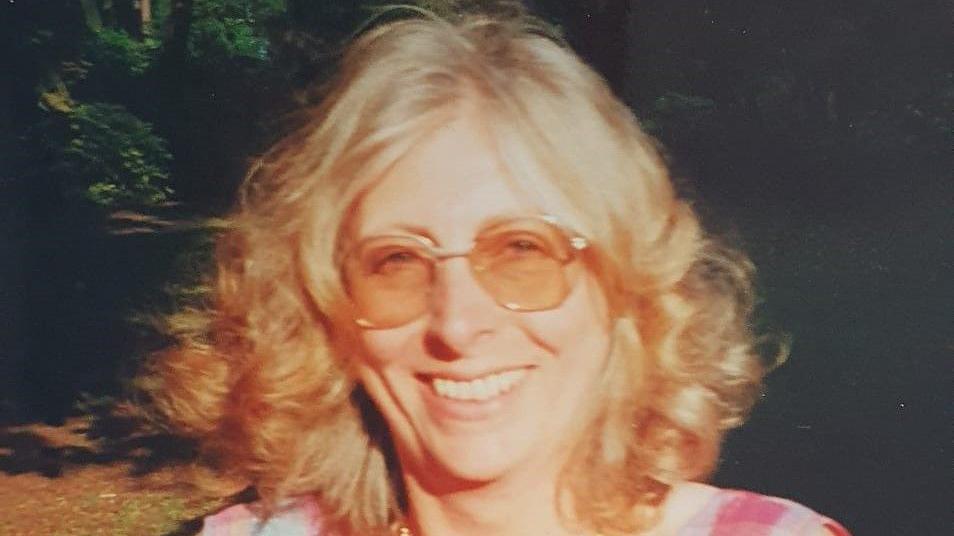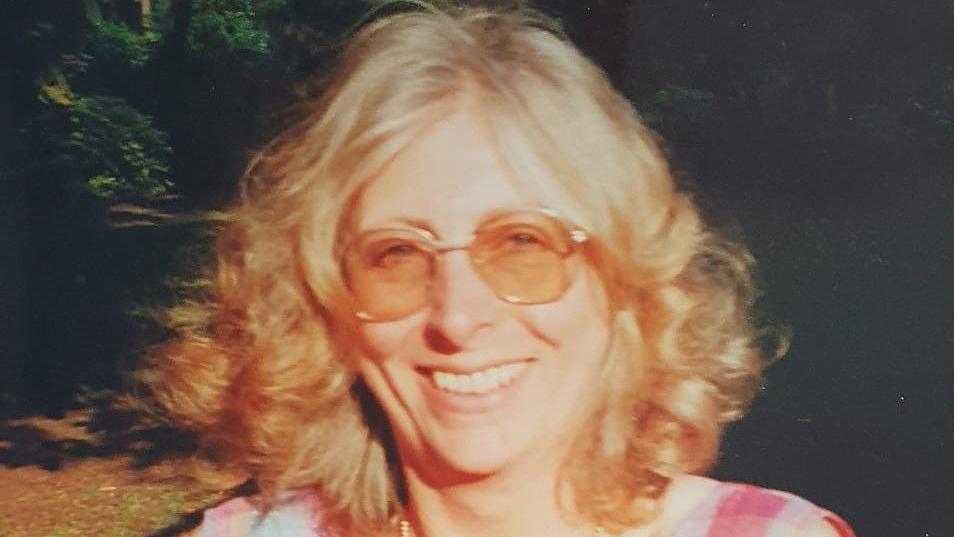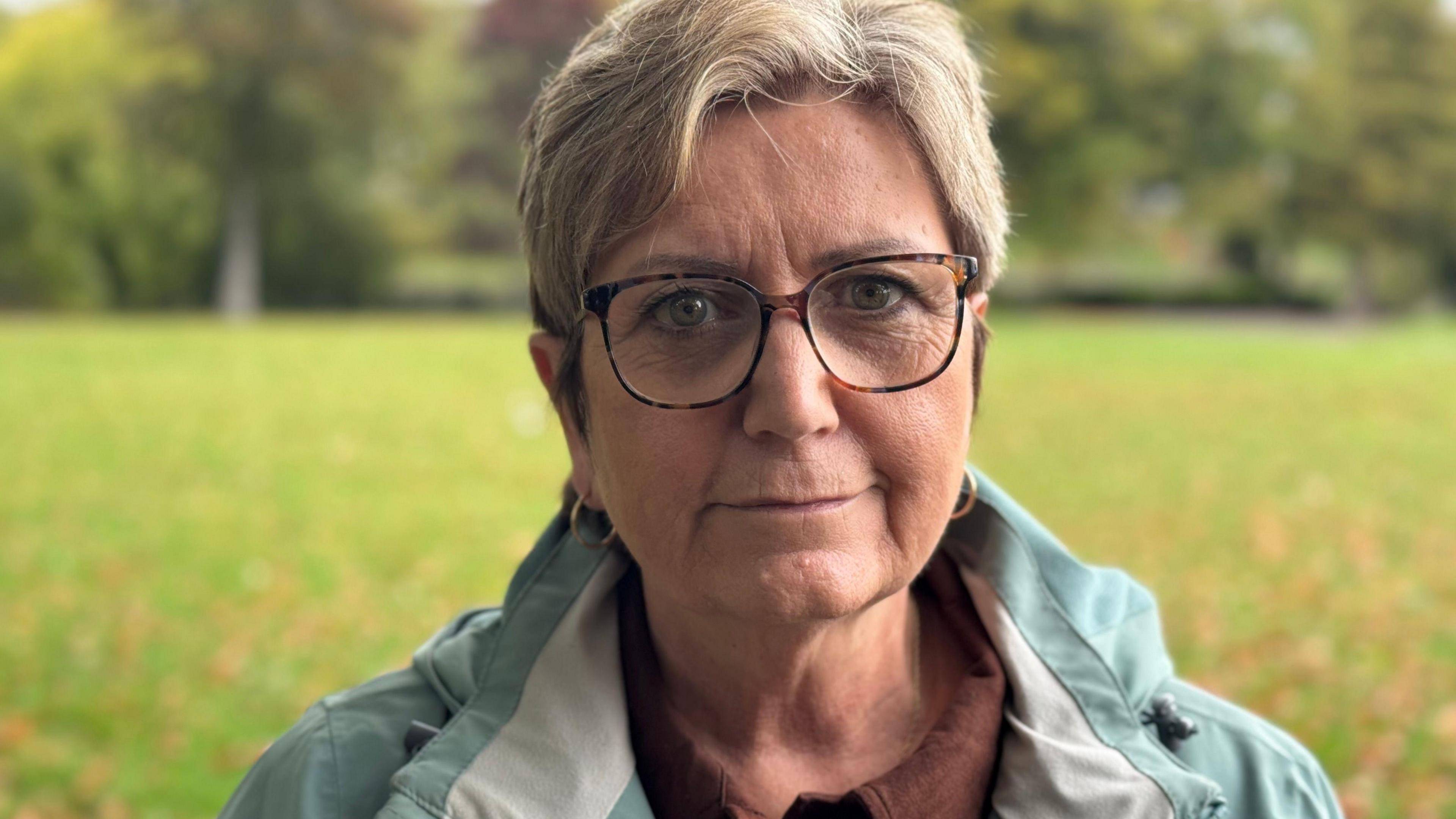Paterson delay 'likely' caused earlier cancer death

Jenny Lloyd-Faux, who died in 2009, aged 62, was a special educational needs teacher and a foster carer
- Published
A delay of more than 40 weeks in treating a patient of jailed breast surgeon Ian Paterson is "likely" to have caused or contributed to her earlier death from cancer, an inquest has heard.
Jenny Lloyd-Faux, a teacher from Birmingham, should have had a biopsy when first referred to Paterson's clinic in October 2000 with "clear symptoms" of breast cancer, consultant surgeon Prof Nigel Bundred said.
Instead, Paterson discharged her after concluding breast changes seen on imaging were benign. She was later diagnosed after being re-referred to him the following summer.
Medical expert Prof Bundred was giving evidence on the final day of the resumed inquest into Mrs Lloyd-Faux's death in 2009, aged 62.
The inquests at Birmingham Coroner's Court are the first time the deaths of 65 of Paterson's former patients have been examined to determine whether or not they died an unnatural death as a result of his care.
Paterson was convicted of wounding patients with botched and unnecessary operations in 2017 and jailed for 20 years.
Scott Matthewson, counsel to the inquest, said Paterson had described a "diffuse nodular feeling" in Mrs Lloyd-Faux's breast with "irregular dimpling" of the skin.
He described the results of imaging, which noted benign breast changes and no malignancy, as "absolutely unequivocal", Mr Matthewson said.
However, Prof Bundred, an emeritus professor of surgical oncology at the University Hospital of Manchester, said Mrs Lloyd-Faux displayed "classic features of breast cancer".
The skin dimpling should have been a warning sign the case required a "triple assessment" of clinical examination, imaging and biopsy, he told the inquest.
He added it was a well-known issue that mammograms did not pick up 30% of lobular cancers in women over 50, which moved through the breast "in an Indian fire pattern".
A second expert, Oxford University Hospital consultant oncologist Prof David Dodwell, told the coroner the initial imaging result did not explain the abnormality.
"You cannot discharge a patient with a question mark," he said.
Notes 'inadequate'
Mrs Lloyd-Faux was re-referred to Paterson in June 2001, when a triple assessment later confirmed cancer in the right breast.
A mastectomy and axillary clearance were carried out on 6 September, with the combined size of tumours removed estimated by the experts to be somewhere between 50 and 74mm, with uncertainty caused by incomplete records.
Prof Bundred described operation notes as "inadequate".
"We know nothing about what operation he's done; we know nothing about his findings... It's woefully below the standards you'd expect," he said.

Paterson was employed by Heart of England NHS Foundation Trust and practised privately at Spire Parkway and Spire Little Aston
In his evidence, Paterson accepted had an earlier diagnosis had been made in 2000, it might have delayed Mrs Lloyd-Faux's death or even led to her being cured, Mr Matthewson said.
But the jailed surgeon also contended her eventual death could have been caused by her not taking her prescribed medicine of tamoxifen.
He based this assertion on clinical correspondence where oncologists encouraged her strongly to keep taking the drug, the inquest heard.
He also stated his patient's weight had fallen by about 2kg, which he said did not happen when women took tamoxifen.
Mr Matthewson said Paterson's claim appeared at odds with clinical notes suggesting she took the medication for almost five years, until June 2006.
Prof Dodwell, meanwhile, called Paterson's first suggestion "surprising" and the second "nonsense".
He said the "majority of oncologists" would record that they would encourage patients to stay on the "extremely powerful" treatment.
Regarding Paterson's statement about Mrs Lloyd-Faux's weight loss, Prof Dodwell said it coincided with her adopting a vegan diet.
He said Paterson's statement on the matter was "not evidence, it's nonsense, and it should be dismissed".
'Life prolonged'
A discussion of the "culpable period", or time that elapsed between when a mastectomy might have been carried out had she been diagnosed in 2000 and her eventual surgery, determined it would be about 308 days, or 44 weeks.
When asked whether a biopsy at that time would have detected cancer, Prof Bundred said: "I'm absolutely sure if she'd had core biopsies of that area which was identified, then a diagnosis would have been made."
He added the continuation of her HRT over that time had to be considered a factor in the rate of spread and growth of her disease.
The estimated impact of diagnostic delay was caveated as being "a crude exercise" by Prof Dodwell, who then said: "I think it's unlikely that her death from breast cancer would have been avoided. I think it is likely that her life would have been prolonged."
With the impact of earlier treatment and stopping of HRT, Prof Bundred said: "It's possible she would get 15 years, but it doesn't mean she would be cured."
The coroner concluded Mrs Lloyd-Faux's inquest, saying he hoped her family had found it helpful, and said he would be requesting further information on some of the matters raised.
Get in touch
Tell us which stories we should cover in Birmingham and the Black Country
Follow BBC Birmingham on BBC Sounds, Facebook, external, X, external and Instagram, external.
Related topics
- Published21 October

- Published22 October

- Published21 October
